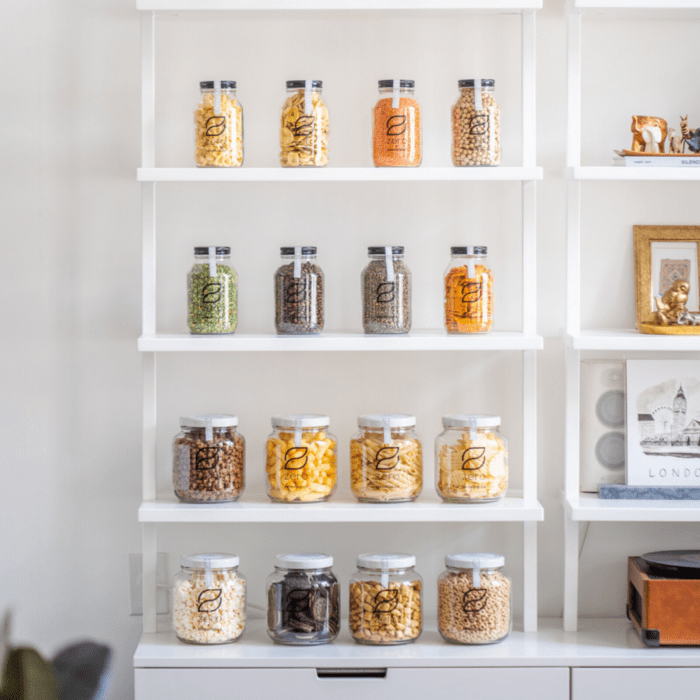“We care about our planet, and are doing our best to keep it clean,” says Zuleyka Strasner, founder of Zero, America’s first online zero-waste grocery store. Globally, it is estimated that 90 percent of plastic waste comes from food consumption. Zero is leading a change in the way people consume food with the sole aim of removing single-use plastics from our food system.
Zero, a black and Trans-owned business, partners selected distributors and farms to bring products to the doorstep of customers at wholesale prices and without plastic, making it better for one’s wallet and the environment.
“I started Zero because I wanted to help our customers save the environment. I was one woman with no savings, no money, and lots of ideas to bring environmentalism to the masses. That’s why our team is building Zero, and I hope you’ll support the cause,” says Zuleyka.
Aligned with its aims of ensuring a sustainable environment and doing away with single-use plastics, the online grocery store in September this year closed a $3 million seed round, raising their total capital to $4.7 million.
Zuleyka managed to raise funds from a pool of investors that included Charles Hudson of Precursor Ventures, Incite.org, Gaingels, Arlan Hamilton, MaC Ventures and 1984 Ventures which provided the largest check for the company.
To get Zero off the ground in early 2019, Zuleyka pitched more than 250 times before finding the first investor. “My belief in the business never wavered from pitch 1 to pitch 250. In fact, as time went on, I only felt more driven to bring Zero to life. This energy set the tone for our company,” she said in a blog post.

Zero Grocery. Photo Credit: @zuleykastrasner
Eventually, she met Charles Hudson of Precursor Ventures who understood the Zero vision and connected with her as a founder from the get-go. “With that initial pre-seed investment, which also included SGH and a bunch of angel investors, Zero was up-and-running in January 2019.”
Funds from Precursor allowed Zero to launch a beta in the Bay Area to figure out sustainable grocery e-commerce. Originally, Zero was an exclusive, à la carte, in-home service. Soon, she and her partners realized the model was un-scalable.
“We took a big cart of product into apartment buildings and literally went into customers’ homes and filled their jars with items. But it was important. It enabled us to understand grocery delivery on a granular level and architect a better way forward,” Zuleyka said.
Within six months, she had loyal customers who shopped regularly and sent her valuable feedback. She reconfigured the services of the company to be able to do next-day, door-to-door delivery of more than 100 zero-waste products. “With this approach, we were delivering products already packaged into jars to customers’ doors and not entering their homes,” she said.
By November 2019, Zero services had covered the entire Bay Area. “Thanks to this traction, we were able to close our second $500K brick. Existing investors doubled down, and we welcomed Chingona Ventures and Cleo Capital, as well as a number of incredible angels, to the Zero farm.”
Although the company closed down due to COVID-19, essential workers were available for delivery in head-to-toe PPE. Demand skyrocketed as the U.S. went into a lockdown and so there was the need for funding to tool up and maintain growth.
“Confident in what we were building, we began conversations with existing investors about getting us the capital we needed,” Zuleyka said. By the end of March, Zero’s revenue increased and got additional funding support from Incite.org, Gaingels, Arlan Hamilton and MaC Ventures, among others to the tune of $700,000.
The fund helped Zero to hire more hands in order to increase delivery capacity. “We built better tools for our team and up-leveled our tech to give our customers optimized shopping experience. However, we saw that COVID was a true test of our supply chain and model,” she said.
It closed a $3 million seed round after seeing its revenue growth 20x since the beginning of February. “The funds come from this group of incredible investors who believe in our company — the largest check came from our friends in 1984. I am thrilled to share this journey with all of these folks.”
Zero Grocery aims to expand to more cities in the U.S. in the near future and partner other local businesses to provide top-notch services to the American people.










